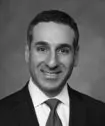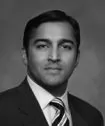In a remand from the Supreme Court for further consideration in view of Bilski v. Kappos, the Court of Appeals for the Federal Circuit in Classen Immunotherapies, Inc. v. Biogen Idec, No. 2006-1634, -1649 (Fed. Cir. Aug. 31, 2011), upheld patent eligibility of two of three patents under 35 U.S.C. 101. The representative claims recited a method whereby information on immunization schedules and the occurrence of chronic disease is "screened" and "compared," the lower risk schedule is "identified," and the vaccine is "administered" on that schedule.
In granting a motion for summary judgment, the district court had found that there was a relation between childhood immunization schedules and the occurrence of chronic immune-mediated disorders. As a result, the claims were found to "describe little more than an inquiry of the extent of the proposed correlation between vaccines and chronic disorders." So the district court held the claims were ineligible under section 101 as being an abstract idea directed to "thinking about" the risks of vaccination.
The Federal Circuit reasoned that although these steps could be considered "mental steps," it is necessary to consider the application of the technology. Here, these steps are directed to a method of lowering the risk of chronic immune-mediated disorder, including the physical step of immunization on the determined schedule, which is a "specific, tangible application." However, other claims that collected and compared known information without a subsequent immunizing step were not patent eligible under section 101.
The Federal Circuit distinguished Prometheus Labs., Inc. v. Mayo Collaborative Services, 628 F.3d 1347 (Fed. Cir. 2010), cert. granted _ S.Ct. _, 2011 WL 973139 (June 20, 2011), which was asserted for the proposition that methods of treatment are always transformative (under the machine-or-transformation test). Prometheus was directed to a method of controlling dosages of a specific drug by measuring its metabolic products in the blood of individualized patients. In contrast, Classen is directed to using published information to determine general immunization schedules.
Chief Judge Rader and Judge Newman added additional views to Judge Newman's majority opinion. Judges Rader and Newman believed that claims are drafted to "circumvent eligibility restrictions," thereby adding to the expense and difficulty in obtaining a patent. They asserted that these public policy reasons can drive innovation investment away from the United States, much like Europe experienced in the 1990s.
Judge Moore dissented from the majority opinion because the "claims at issue are to a fundamental scientific principle so basic and abstract as to be unpatentable subject matter." Judge Moore saw no distinction between those claims found to be eligible and ineligible, as all of the claims require immunization either at the beginning or end of the claim. Judge Moore found no limitations on the type of drug to immunize with, the schedules that should be used for the immunization, the type of chronix immune disorder to look for, or any limitation on the control group. So the claims were very broad and conceptually abstract. She compared these claims to patenting E=mc2 or comparing two cups of coffee to determine which one tastes sweeter, examples that she believed were more "concrete." Judge Moore did not believe that a "post-solution immunization ... transform[s] the unpatentable principle—that a correlation exists between vaccination schedules and incidence of chronic immune disease—into a patentable process."
The Federal Circuit has recently taken a narrow approach to patent eligibility, such as by invalidating claims in CyberSource Corp. v. Retail Decisions, Inc., even though those claims recited the use of a computer. In Classen, the Federal Circuit appears to be a little more flexible by allowing claims that could be include patent-ineligible "mental steps" because those claims also include a tangible application, which appears reminiscent of the previous "useful-concrete-tangible" test. Though it is unlikely that the U.S. Patent & Trademark Office will change their approach to examination, patent owners may be better equipped to fend off a patent eligibility challenge.
The content of this article is intended to provide a general guide to the subject matter. Specialist advice should be sought about your specific circumstances.



